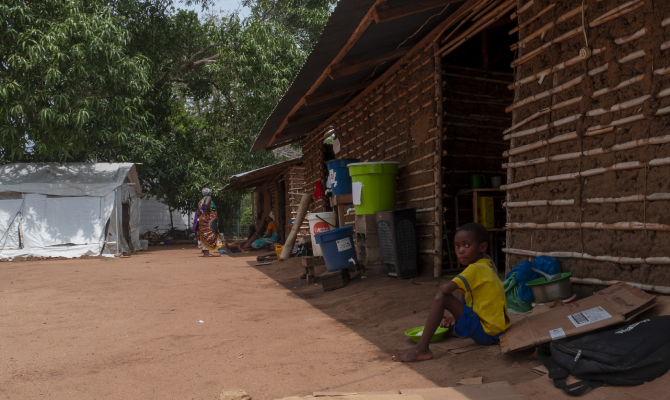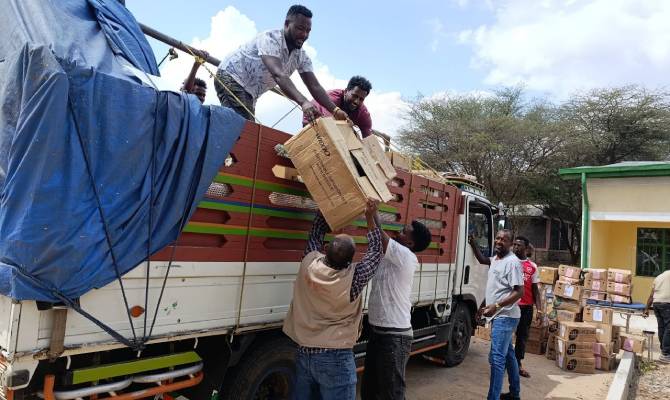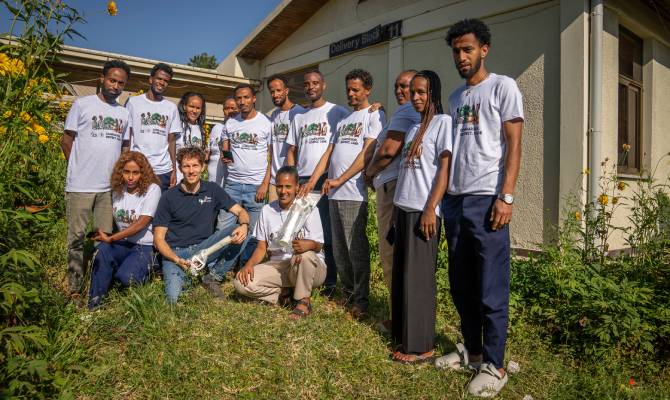Marrupa village, Chiure dictrict in Cabo Delgado province hosted the cerimony for the certification of the first Família Modelo at the presence of the Governor and other authorities.
The certification of Família Modelo is assigned by local authorities in the framework of the project implemented by CUAMM in partnership with UNICEF across seven districts in the northern province of Cabo Delgado, namely: Ancuabe, Balama, Chiure, Ibo, Montepuez, Mueda and Palma.
«Today we are witness of a meaningful change for the health of the population. With our presence, we want to renew our commitment and desire to see an increasing number of communities improving both their health status and hygiene habits» said Josè Moniz – Head of area during the ceremony.
The ceremony has a deep value for the whole province of Cabo Delgado which has been suffering from an internal conflict since 2017. The northern villages have been attacked several times ever since, pushing thousand of people to flee their home and leaving Palma district nearly abandoned. A total number of 800.000 people fled seeking safety in the southern districts of Cabo Delgado finding shelter in both IDPs camps and host communities. In this condition of extreme vulnerability, many are the factors that undermine people access to health services. In addition, the outbreak of the Covid-19 pandemic but also the possibility of cholera outbreaks as well as the ever-increasing cases of malaria exacerbate a fragile situation.
«Quionga village, in the district of Palma is located only a few miles from Tanzania. In 2021 the village was set on fire by a terrorist group – said Edoardo Occa – CUAMM Head of community health programme. Now, we are back here. We gathered with the community under a mango tree where we have trained the village health committee to strengthen their response capacity to malnutrition, cholera and malaria».
Field activities by community health workers are key for the success of the program that we are carrying our in 7 districts to promote good hygiene habits aiming to prevent cholera, malaria and Covid-19 but also to improve the access to healthcare services within the communties.
«In March 2021, terrorists groups had arrived in this area after landing by sea on Palma beach, just about 20 km to the south. We have finally drove this road again to meet the community health workers who play a key role in the program Família Modelo , promoted by the Mozambican government and implemented by CUAMM in partnership with UNICEF» said Edoardo Occa.

Our team on the ground drive the road between Palma and Quionga to reach the districts and train community health workers. This road had long been unsafe due to the attacks.
Since the second half of 2022, an ever increasing number of IDPs previously sheltered either in camps or host communities, started returning to their home villages. About 90.000 refugees went back to Palma, Mocimboa da Praia, Mueda and Macomia. Challenges remain numerous for the returnees who struggle to have access to essential health care in a forgotten area where support by the national system lacks. To exacerbate their condition of vulnerability, food shortages and few livelihood options in a land where drought and rainfalls threaten crops.





